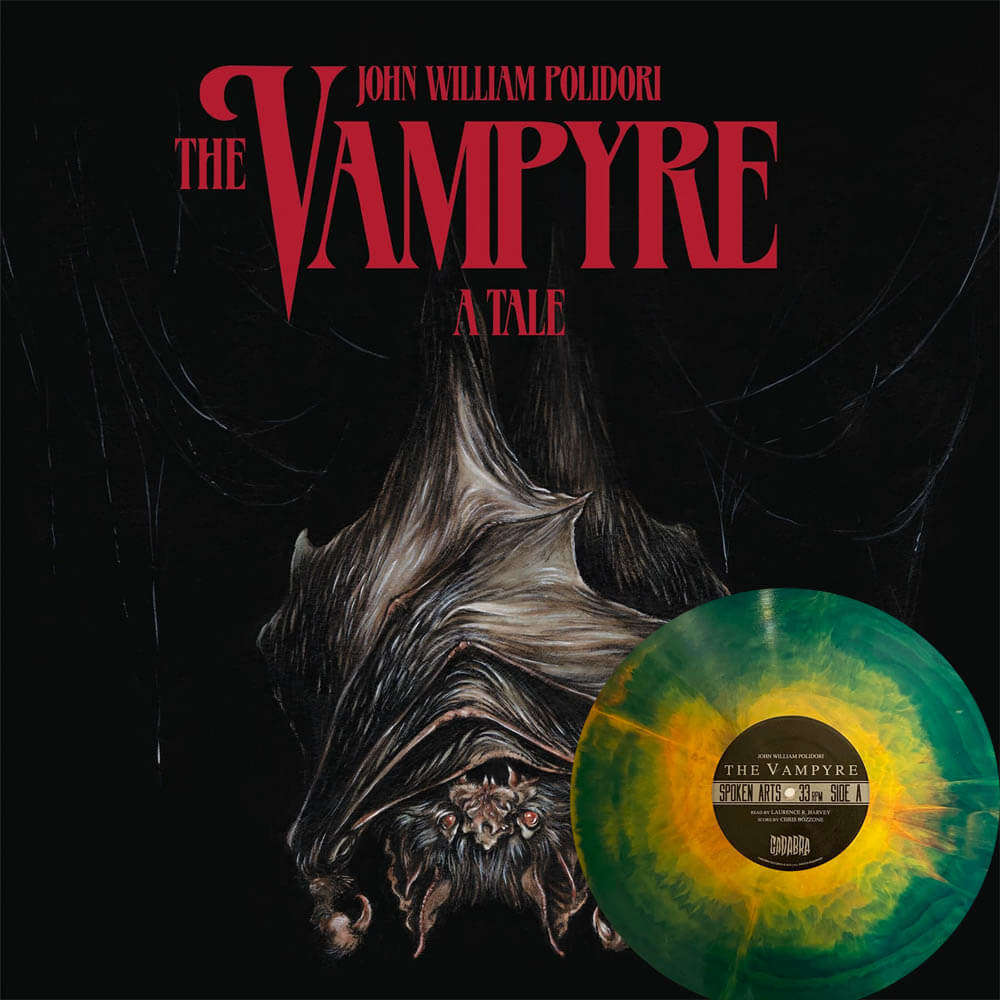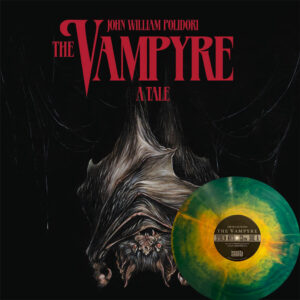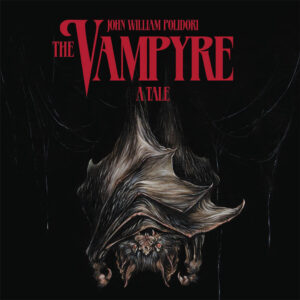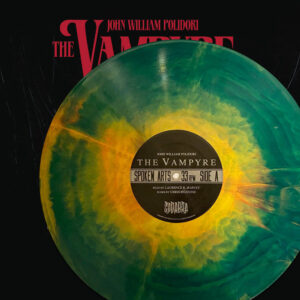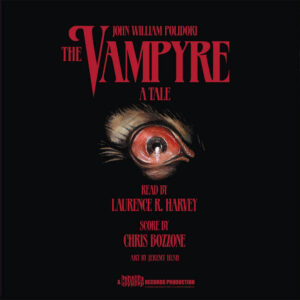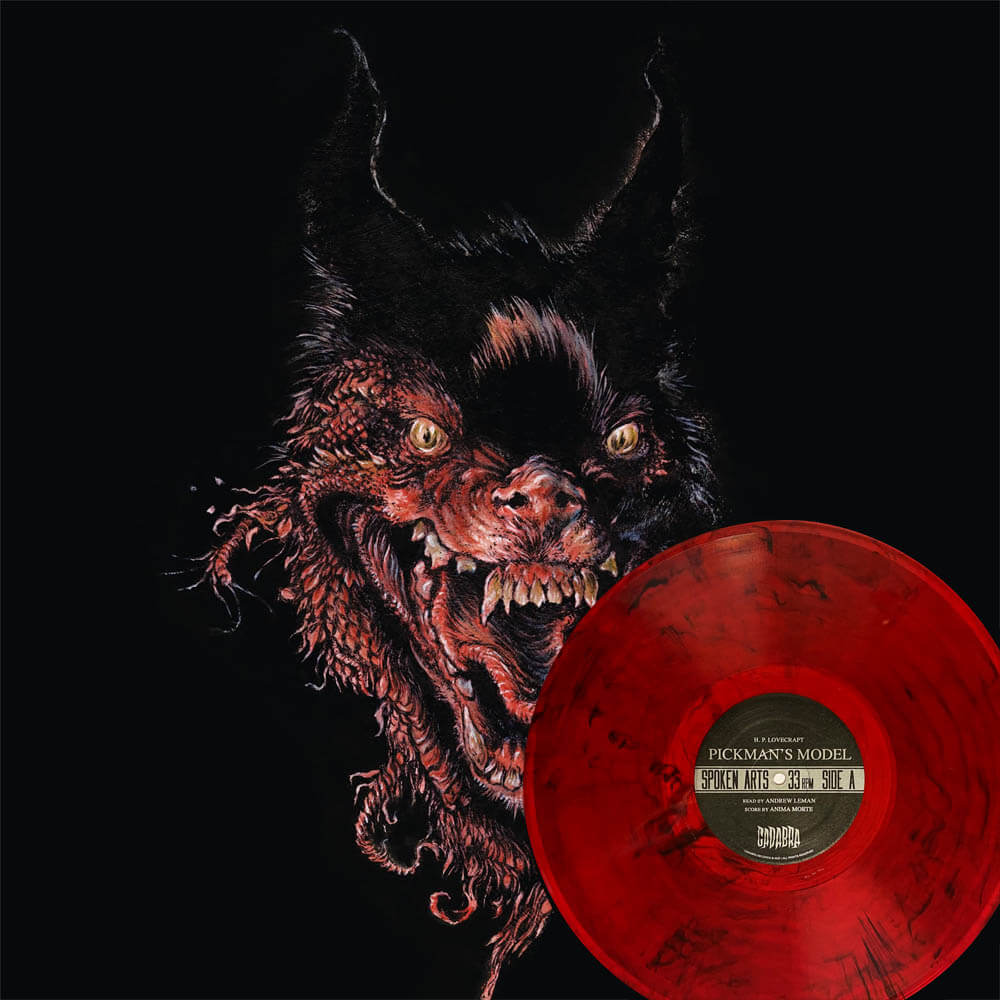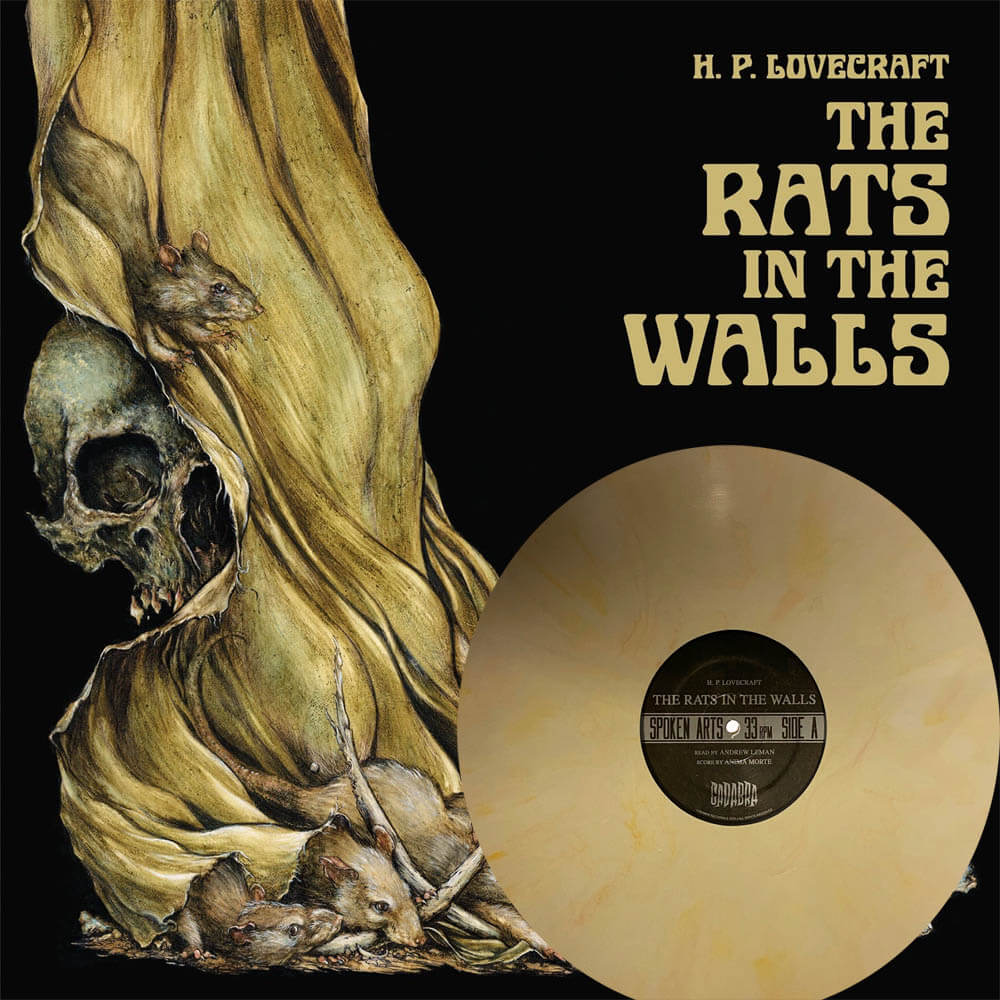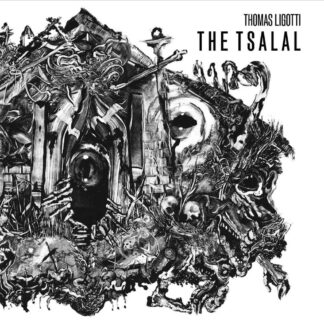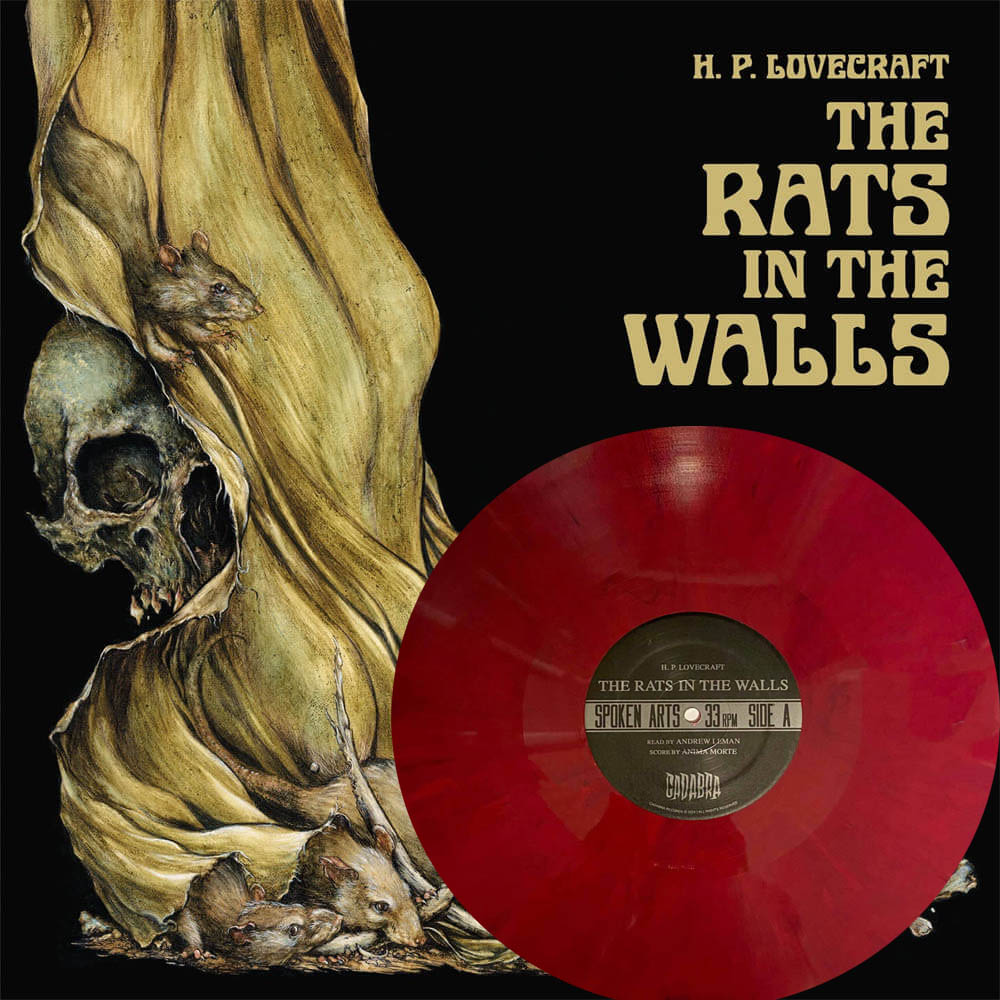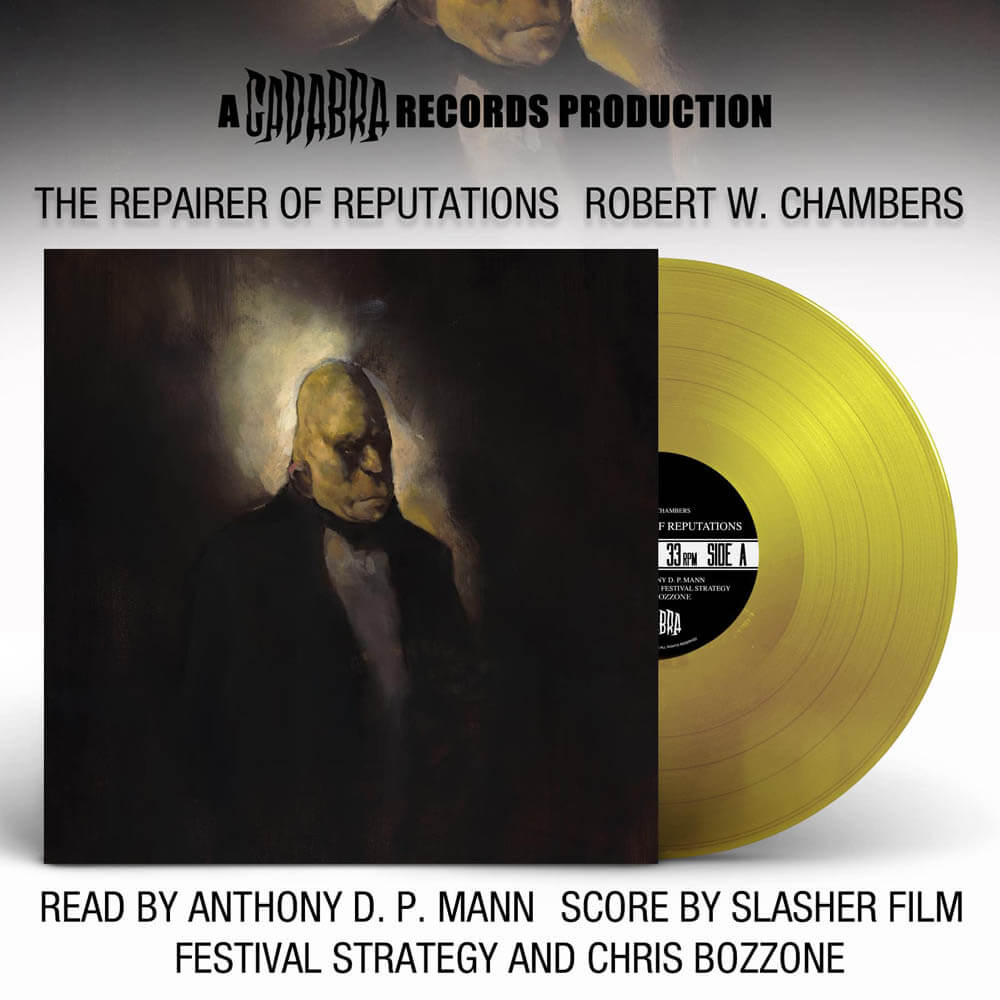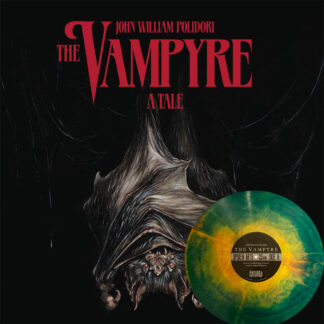The Vampyre A Tale
$56.23
Please Note… These are random coloured vinyl. Image shown is one of the random colours.
Limited Editon “Random” color variant -Only 60 x copies available World
* Limited pressing on 150 gram vinyl
* Gatefold jacket packaging
* Includes liner notes by S. T. Joshi
* Newly commissioned art by Jeremy Hush
ONLY 3 LEFT
John William Polidori’s “The Vampyre” is the first English-language story written about the vampire as we know it, preceding Bram Stoker’s Dracula by nearly 80 years. Emanating from the same storytelling game at Lake Geneva which also produced Mary Shelley’s Frankenstein, Polidori’s tale bears the Romantic hallmarks of its Byronic influences, but stands wholly on its own despite drawing from Lord Byron’s own “Fragment of a Novel.”
Read here by Laurence R. Harvey and scored by Chris Bozzone, Cadabra’s adaptation leans strongly into the modernity of this very British tale. While Stoker’s Dracula is wholly original in its epistolary form and construction, the elements extant in this early 19th century tale set the form for what would become the foundation of nearly every vampire story for the next two centuries. Lord Ruthven walks among the elite as one of them, not a mysterious figure in the shadows. None but the villagers suspect what’s going on. The vampire stalks young and lovely women, acting as much as a seducer as a monster, but a creature of the night no matter how you might perceive him.
However, Harvey’s reading demonstrates just what makes “The Vampyre” so special on its own merits, rather than leaning into its bonafides as the progenitor of a subgenre. The way in which our reader knowingly emphasizes the bits and pieces of foreshadowing is marvelous. Notable is the early mention of ladies looking to gain “some marks of what they might term affection,” and the clever stress on “marks” is an eyebrow-raising glimpse at what we all know will be the outcome of these dalliances.
The appeal of hearing Laurence R. Harvey’s interpretation of Polidori’s story is that, in the span of 40 minutes spread over two sides of a vinyl record, the actor interprets it with the foreknowledge of the annals of vampire literature and film. He brings the weight of two hundred years’ history with him, but not anachronistically, and “The Vampyre” bears up underneath it. Every Bela Lugosi, Christopher Lee, and countless others are standing near when we hear, “Remember your oath,” but Harvey makes Ruthven his own.
The compositions of Chris Bozzone focus on piano and acoustic guitar, with a hint of electronic background, working within the temporal milieu in which “The Vampyre” takes place. There’s a certain Greek element within the guitar work, evoking the tones of where the story’s turning point takes place, while the piano brings to mind the parlors and sitting rooms of London high society. As with Harvey’s reading, there’s historical knowledge brought to bear, but not slavishly imitated or held to.
John William Polidori’s “The Vampyre” is more than a relic and more than a historical footnote to two other titans of horror literature. It’s the very foundation upon which sits two hundred years of modern vampire lore and thanks to the work of reader Laurence R. Harvey and the score by Chris Bozzone, we know have the definitive proof thereof.
Track List
| Number | Title |
|---|---|
| A | The Vampyre - Part 1 |
| B | The Vampyre - Part 2 |

